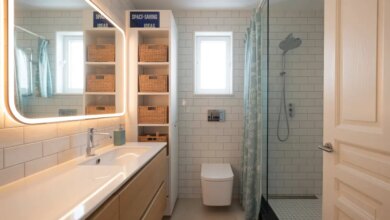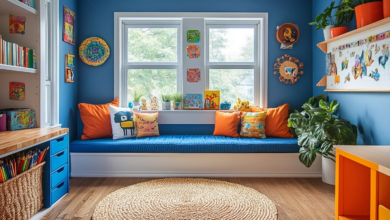29 Stunning Art Deco Interior Ideas to Transform Your Home into a Chic Masterpiece
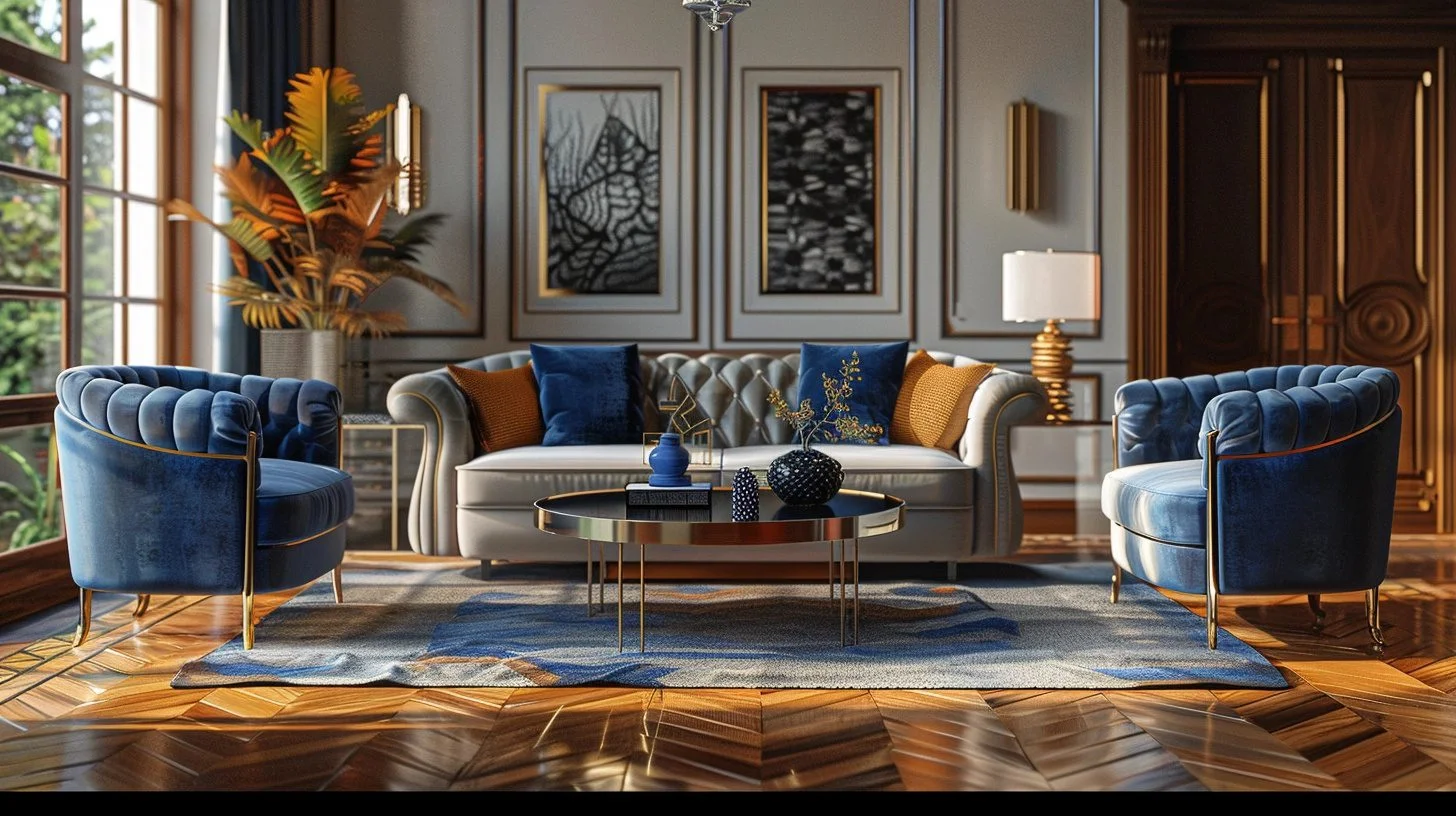
Have you ever dreamed of transforming your living space into a dazzling tribute to the elegance and flair of the 1920s? Picture a home where striking geometric designs, sumptuous materials, and exquisite details blend seamlessly to evoke the timeless sophistication of the Art Deco movement. In this guide, we’ll unveil a collection of innovative Art Deco interior design concepts that will help you craft a stylish sanctuary. From streamlined furnishings to eye-catching accents, these ideas will enable you to embody the spirit of Art Deco with a fresh, contemporary twist. Let’s embark on this journey to infuse your home with enduring glamour!
Embracing Opulence: The Essence of Gilded Luxury
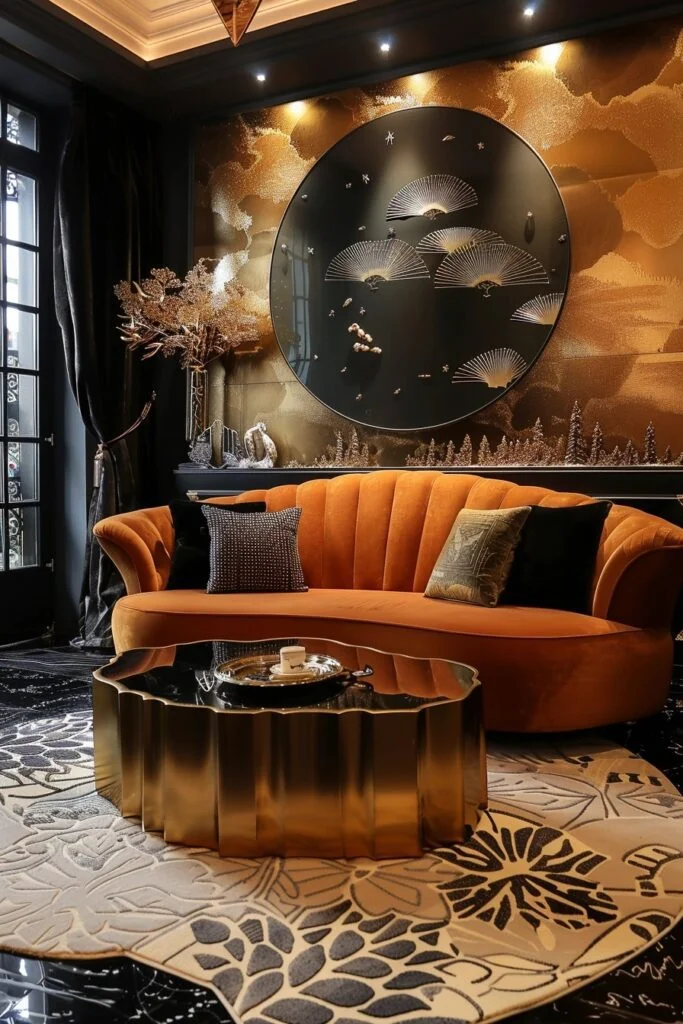
The hallmark of Art Deco’s lavishness lies in its use of gold embellishments and rich textures. Incorporate ornate mirrors with gilded frames, sumptuous velvet upholstery, and artwork encased in golden borders to evoke a sense of grandeur. Complement these with geometric wall panels and intricately patterned rugs that echo the era’s love for symmetry and detail. Lighting fixtures with elaborate designs further enhance the luxurious ambiance. This approach is perfect for creating a statement room that radiates timeless elegance and sophistication.
Dynamic Patterns: Chevron Chic for Modern Energy
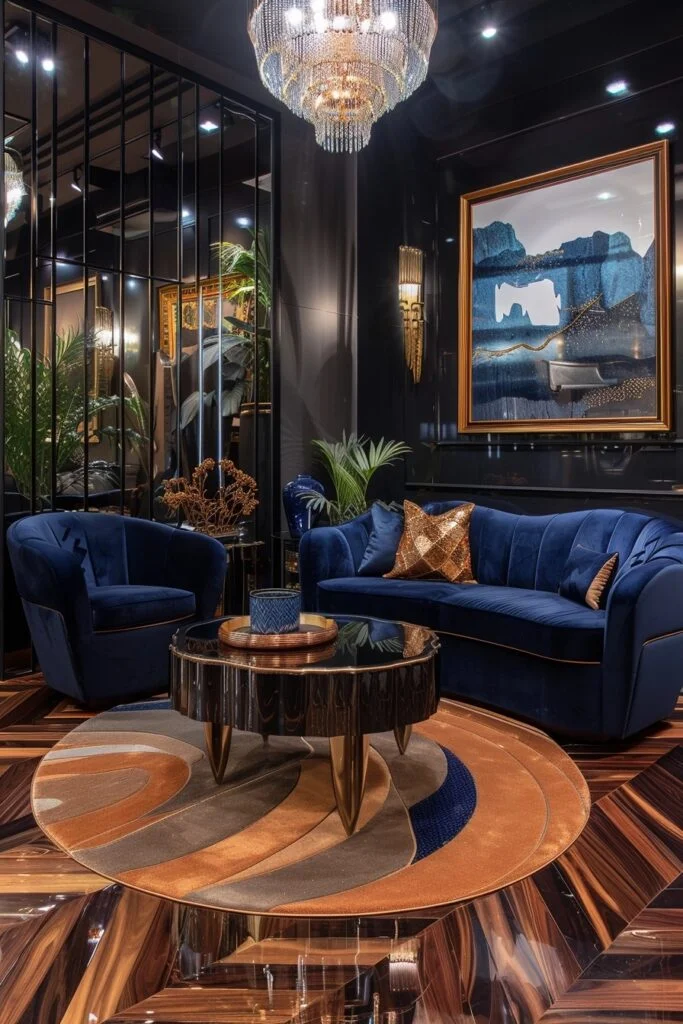
Inject vitality into your interiors with the iconic chevron pattern, a dynamic zigzag motif that brings movement and rhythm to any space. Balance the sharp angles with curvaceous furniture and rounded Art Deco elements to create visual harmony. Metallic finishes and glossy surfaces amplify light reflection, enhancing the room’s opulent feel. This style suits those who admire the exuberance of the 1920s but prefer a contemporary edge.
Urban Sophistication: Inspired by Skyscraper Grandeur
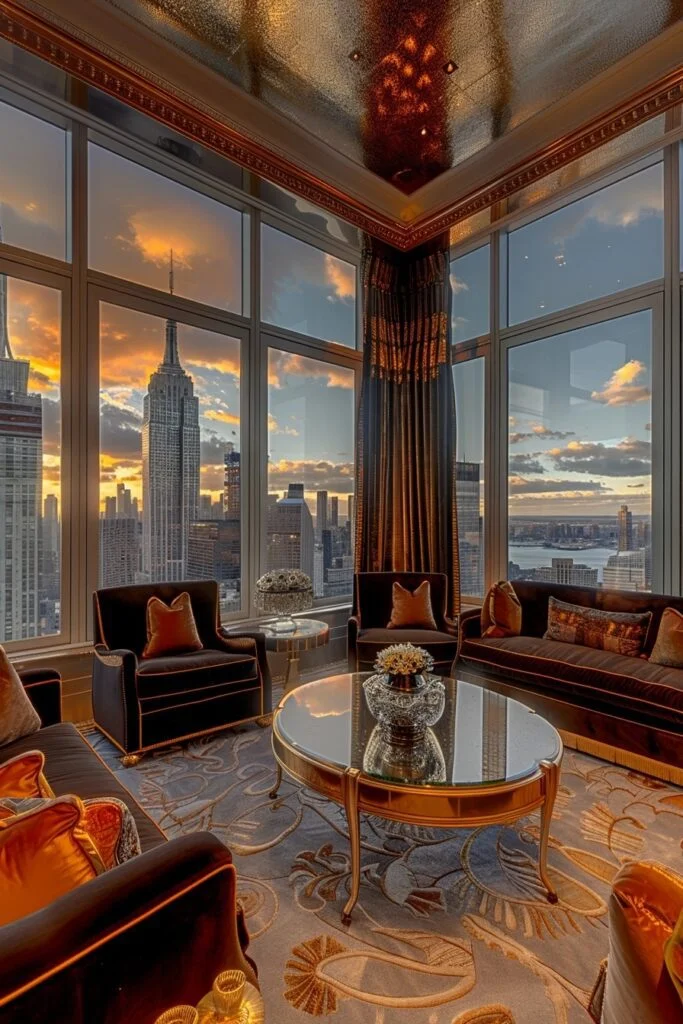
Channel the majestic verticality of iconic city skyscrapers through tall, streamlined furniture and pronounced vertical lines. Utilize materials such as polished chrome and mirrored glass to mimic the reflective surfaces of urban architecture. A monochromatic palette punctuated with bold accents captures the essence of metropolitan refinement. This design is ideal for a home office or study, inspiring productivity with its sleek, commanding presence.
Timeless Nostalgia: Vintage-Inspired Art Deco Retreat
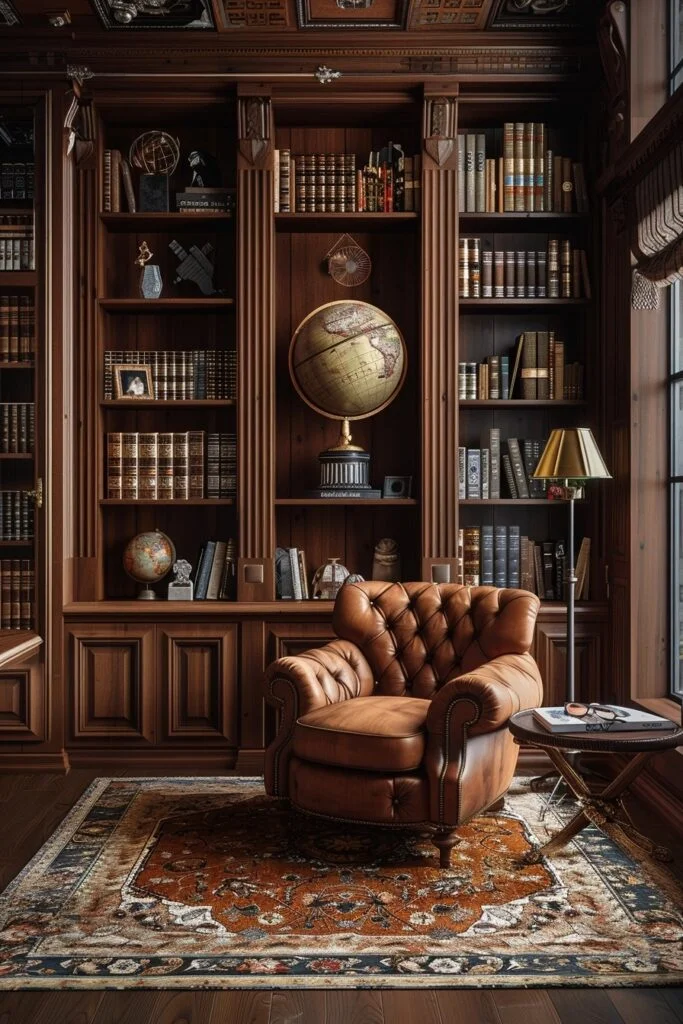
Rekindle the charm of the past by integrating antique furnishings and classic color schemes reminiscent of the Art Deco era. Warm wooden accents and plush textiles create an inviting atmosphere, while traditional Art Deco motifs and mirrored surfaces add authenticity. This style is perfect for those who appreciate a blend of historical elegance and cozy luxury.
Architectural Inspiration: Manhattan’s Monumental Style
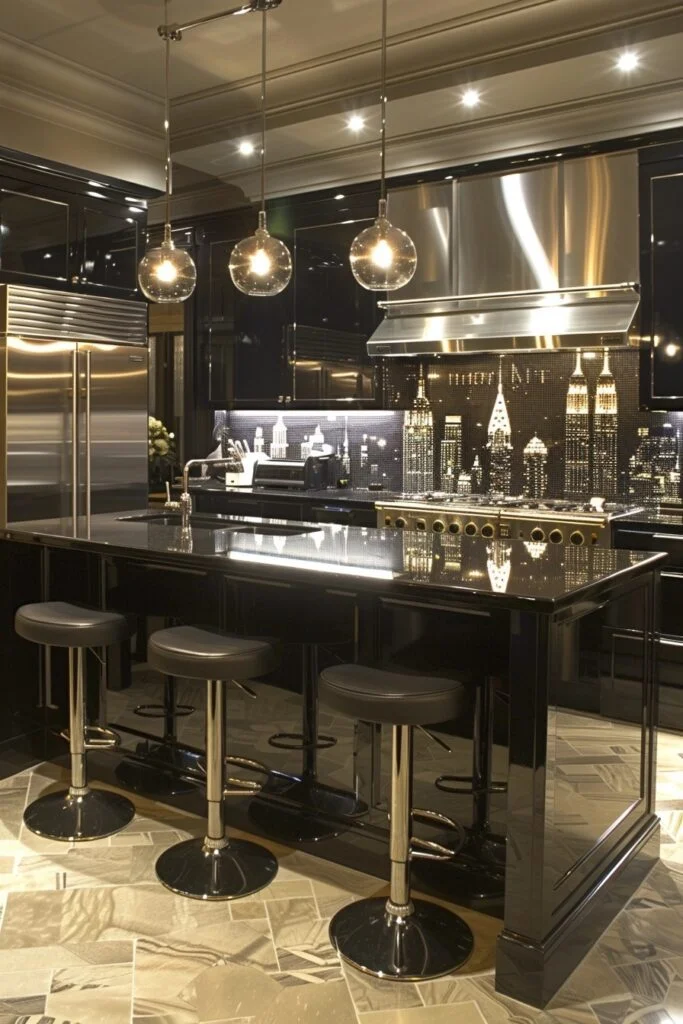
Draw from the geometric precision of Manhattan’s Art Deco architecture by selecting furniture and fixtures with angular shapes that echo the city’s iconic facades. A color palette featuring deep blues, grays, and silvers reflects the urban skyline, while accents of marble and onyx introduce a refined touch. This design is well-suited for living or dining areas that demand attention and sophistication.
Golden Era Elegance: The Twenties’ Luxe Sanctuary
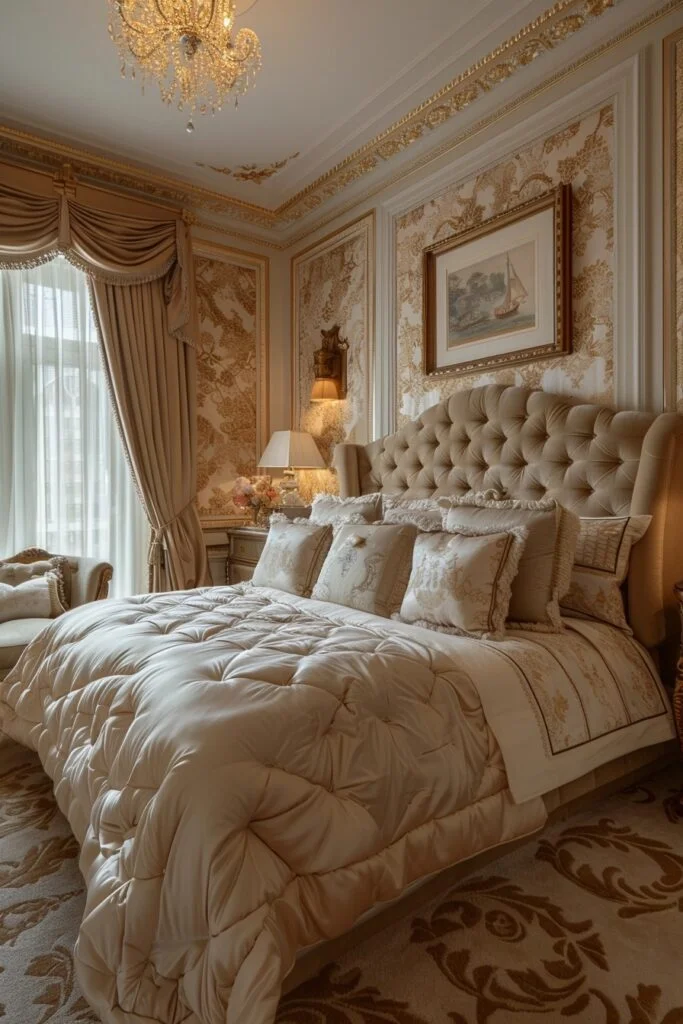
Celebrate the opulence of the 1920s with interiors featuring luxurious fabrics, radiant gold accents, and elegant decorative details. Fluted patterns on walls and furniture, combined with grand light fixtures, emphasize the prosperity of the era. Rich hues like deep greens and blues, enhanced by metallic tones, create a lavish environment perfect for those who adore the exuberance of the Roaring Twenties.
Jazz Age Vibes: A Lively and Artistic Ambiance
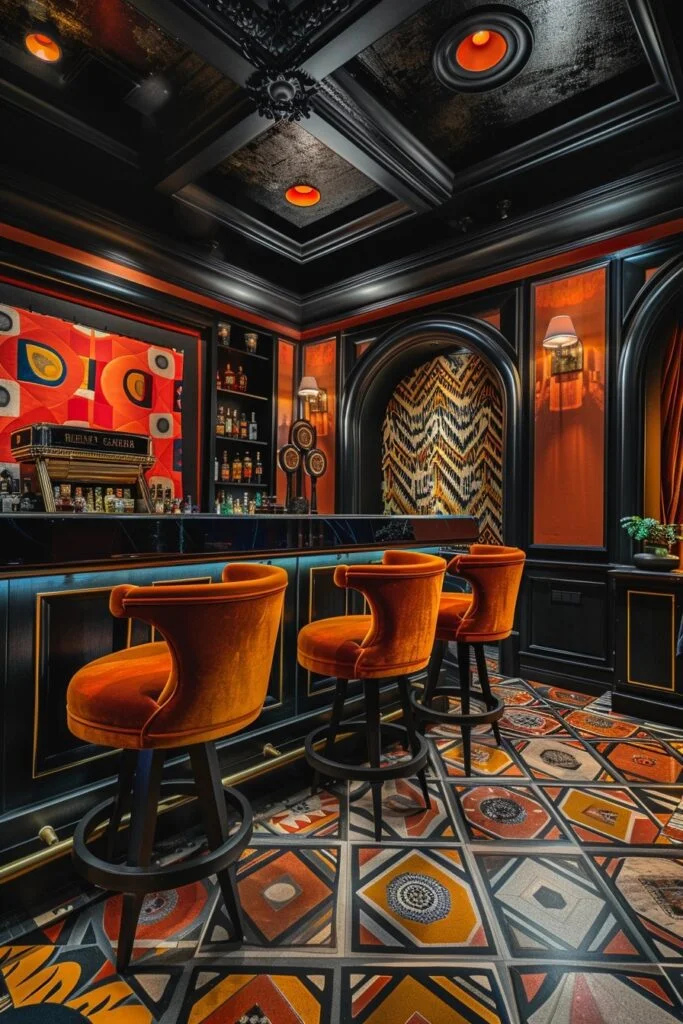
Capture the vibrant energy of the Jazz Age with bold geometric patterns, vivid colors, and intricate detailing. Incorporate glossy black surfaces paired with chrome accents and splashes of primary colors to evoke a playful yet sophisticated atmosphere. Artwork featuring jazz musicians or vintage concert posters can deepen the thematic resonance. This style is ideal for music rooms or entertainment areas celebrating cultural innovation.
Iconic Motifs: The Radiance of Sunburst Designs
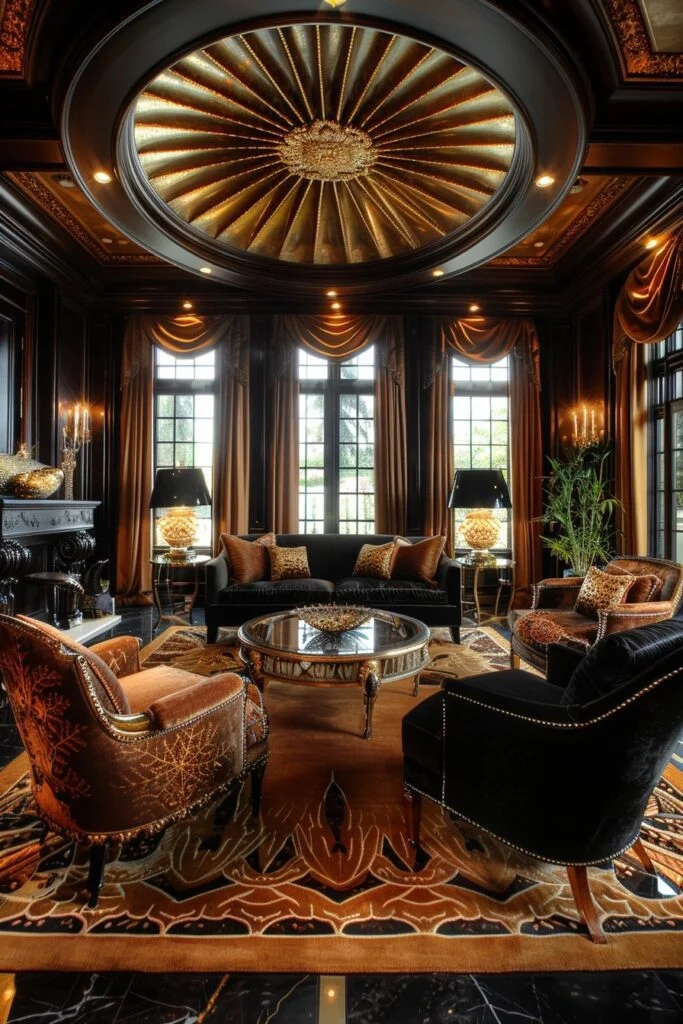
The sunburst motif, a quintessential Art Deco symbol, can be featured prominently in mirrors, wall art, and ceiling details. Complement these with radial patterns in flooring or textiles to create a radiant focal point. Use luxurious materials such as gold leaf and satin to enhance the warm, inviting atmosphere. This design works beautifully in grand entryways or main living spaces designed to impress guests.
Playful Elegance: Retro Radiance with Pastel and Neon
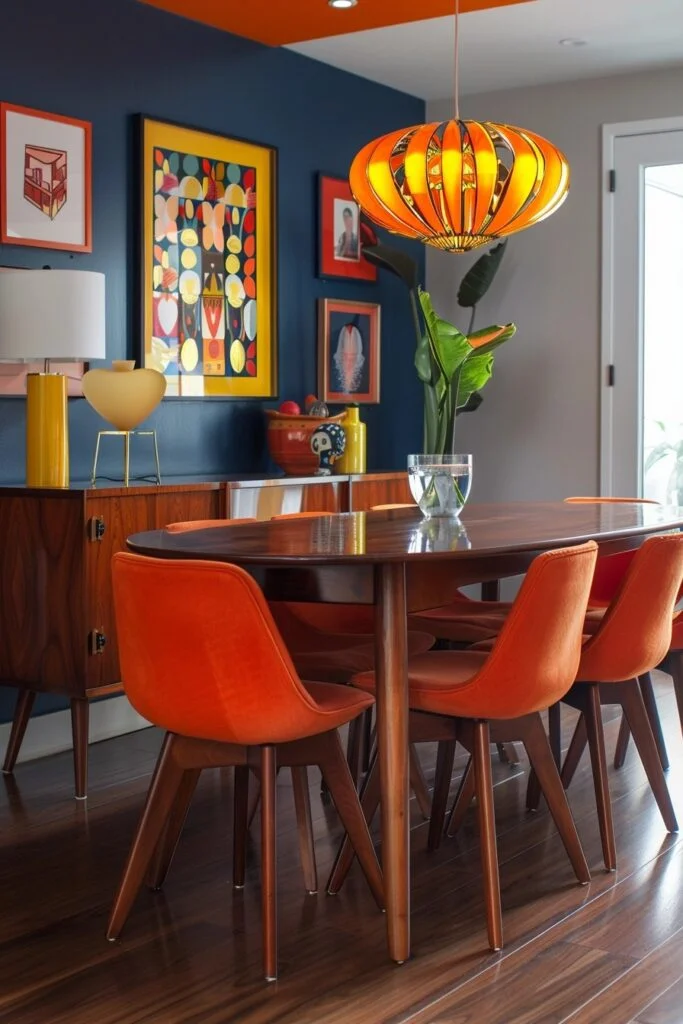
For a lighter, more whimsical take on Art Deco, blend pastel shades with neon lighting to create a vibrant yet stylish environment. Rounded furniture with glossy finishes adds a modern flair to traditional Art Deco lines. This approach is perfect for bedrooms or casual lounges aiming to balance fun and sophistication.
Expressive Spaces: Flapper-Inspired Eclectic Interiors
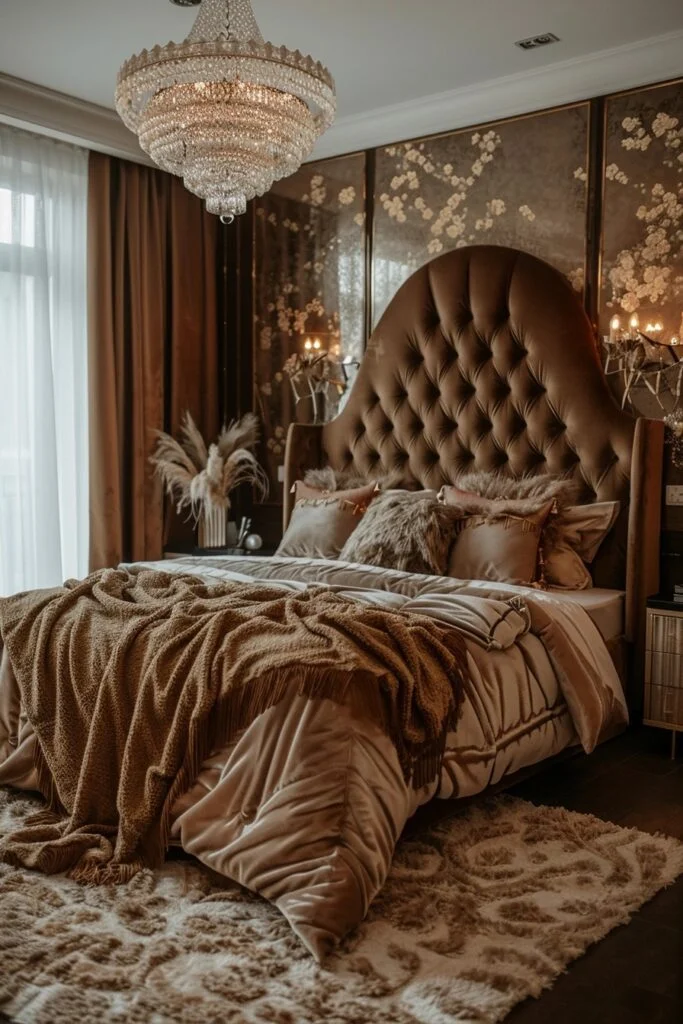
Recreate the spirited lifestyle of the flappers with a mix of textures and patterns that evoke movement and glamour. Feather motifs, shimmering fabrics, and beaded curtains add depth and dynamism. Dramatic lighting reminiscent of 1920s dance halls enhances the lively atmosphere. This style is ideal for entertaining spaces where individuality and flair are celebrated.
Streamlined Sophistication: The Machine Age Influence
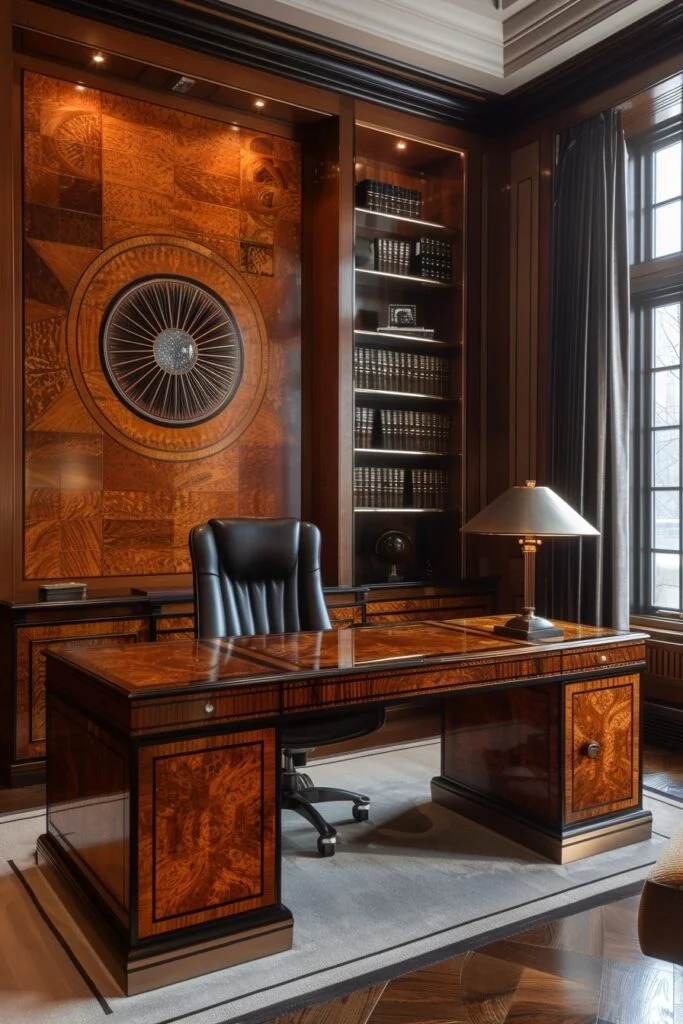
Reflecting the aerodynamic designs of the 1930s, this style emphasizes smooth surfaces, sleek lines, and a subdued color palette. Subtle curves complement the streamlined forms, while chrome and glass elements enhance the modern aesthetic. This look is perfect for sophisticated home offices or living rooms seeking a refined, contemporary vibe.
Dramatic Contrast: Black and Gold Elegance
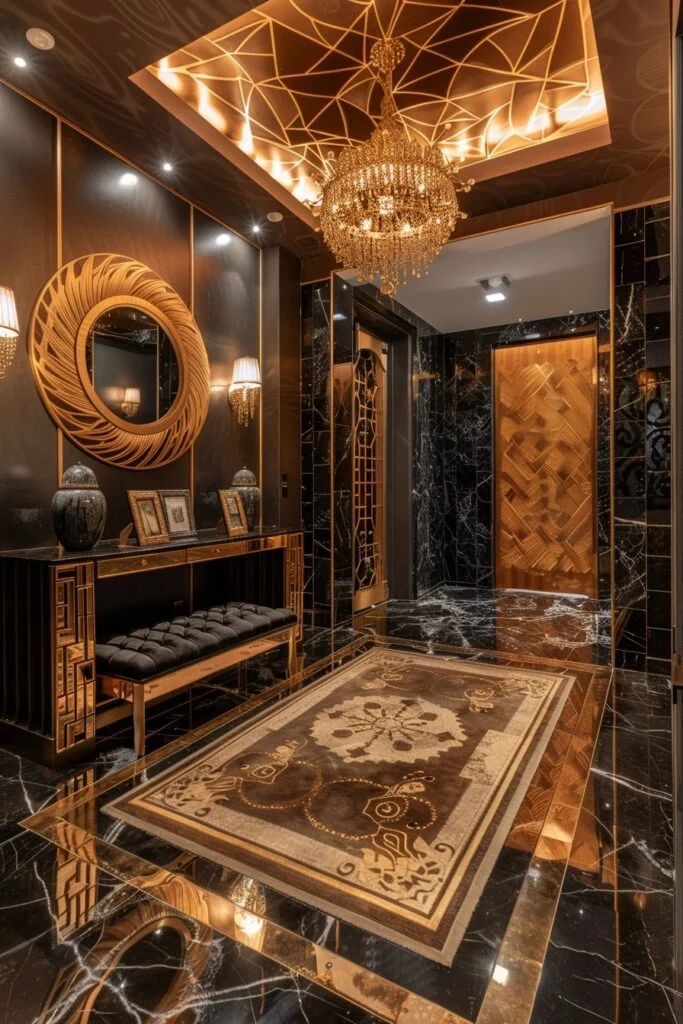
Utilize the striking combination of black and gold to create a regal and opulent atmosphere. High-gloss black lacquer furniture with gold trim, expansive gold leaf murals, and plush black velvet upholstery contribute to a dramatic yet elegant space. This palette is ideal for dining rooms or master bedrooms where luxury and boldness are desired.
Tranquil Hues: Sapphire Serenity in Art Deco
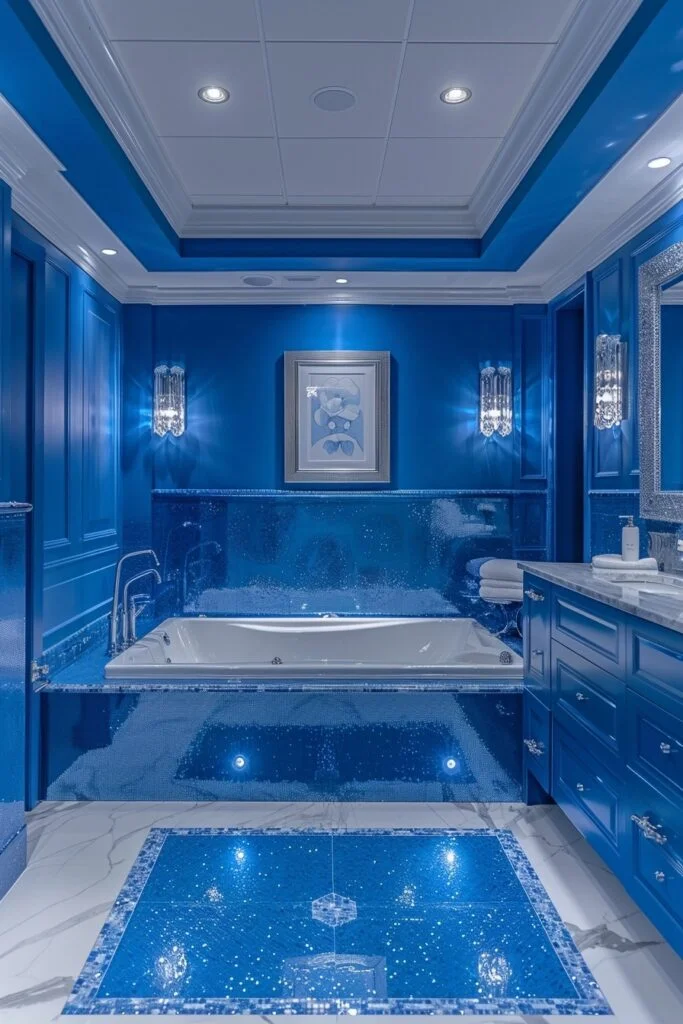
Incorporate calming sapphire blues paired with geometric patterns and metallic accents in silver or chrome to craft a serene yet stylish environment. Soft lighting and reflective surfaces enhance the peaceful ambiance, making this design perfect for bedrooms or bathrooms seeking a sophisticated retreat.
Hollywood Glamour: Regency-Inspired Hideaway
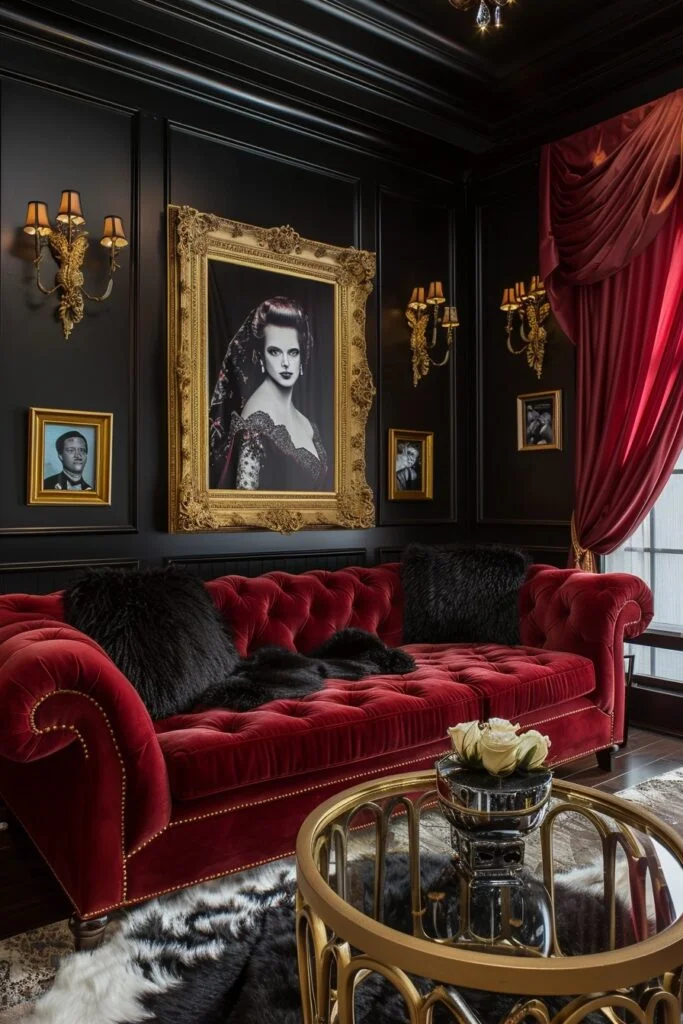
Inspired by the lavish film sets of 1930s Hollywood, this style features bold patterns, luxurious materials, and a grand sense of drama. High-contrast color schemes, ornate furnishings, and sumptuous textiles create a celebrity-worthy ambiance. Oversized mirrors and metallic sculptures add theatrical flair, perfect for those who want their living spaces to feel like a star-studded retreat.
Silver Screen Elegance: Cinema-Inspired Interiors
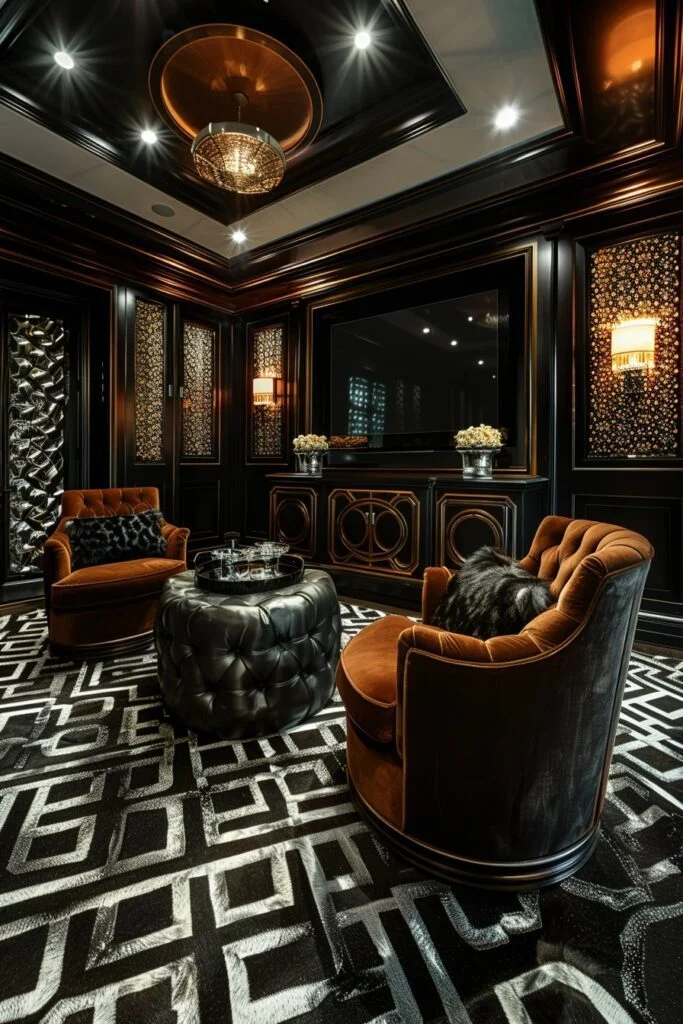
Celebrate the golden age of cinema with interiors that emphasize sleek silver elements and mirrored surfaces. Deep-toned velvet and satin fabrics provide a luxurious backdrop, while Art Deco lighting fixtures pay homage to classic film design. This style suits media rooms or formal living areas that blend nostalgia with opulence.
Reflective Surfaces: Mirror and Metal Fusion
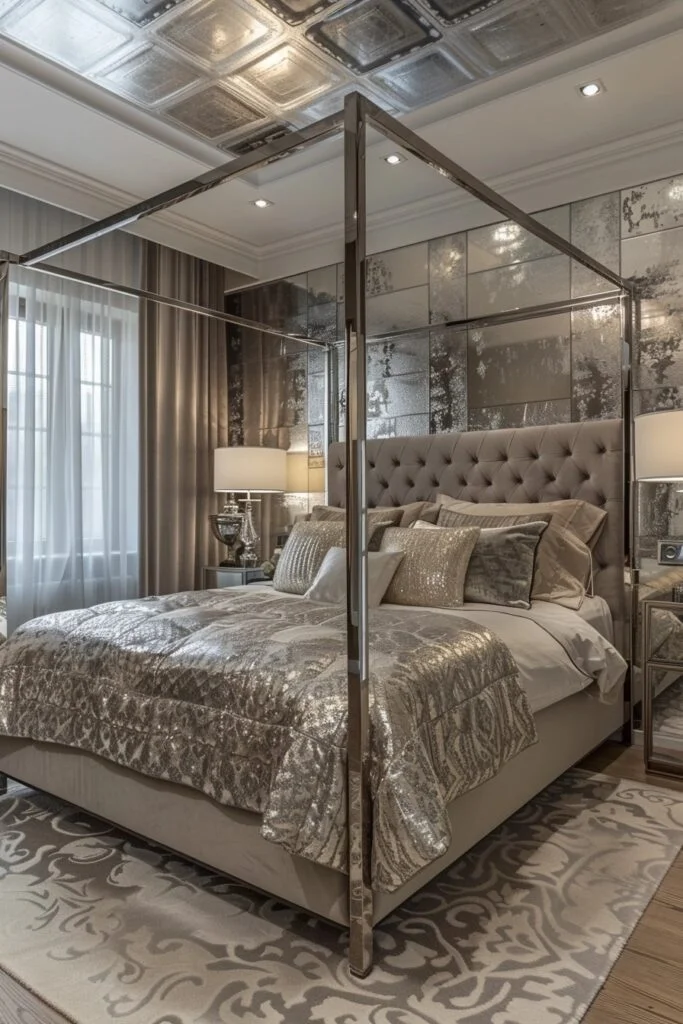
Highlight the industrial fascination of Art Deco by incorporating mirrored panels and polished metals. Chrome or stainless steel furniture with glass tops, geometric rugs, and metal wall art create a bright, expansive feel. This design is ideal for modern spaces that want to honor historical design while maintaining a contemporary edge.
Dark Elegance: The Opulent Obsidian Oasis
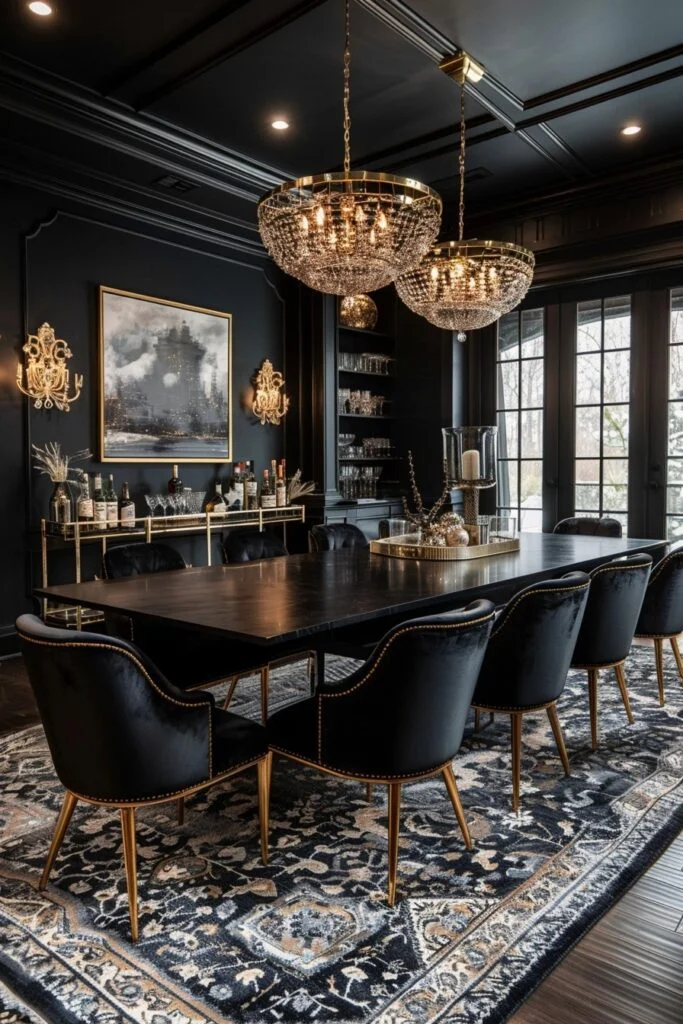
Utilize deep black hues combined with gold or brass accents to create a dramatic and luxurious atmosphere. Plush fabrics and intricate decorative accessories amplify the richness, making this style perfect for master suites or formal dining rooms where bold statements are welcomed.
Vibrant Hues: Luxe Lacquer Living
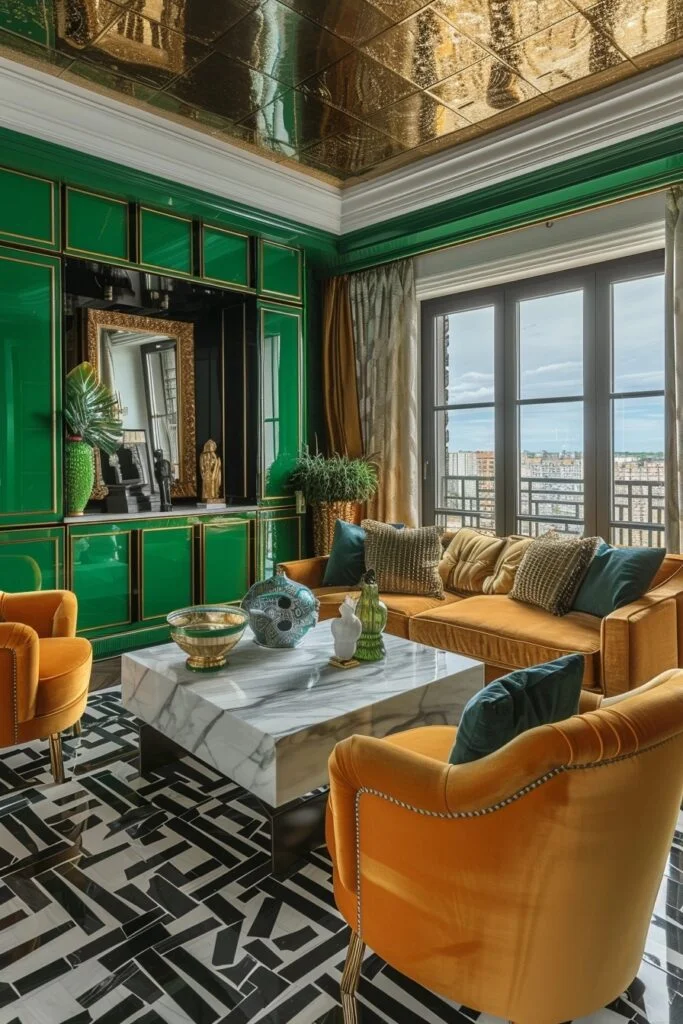
Showcase the glossy finish of lacquered furniture in vivid colors such as royal blue or emerald green, contrasted with metallic gold or silver accents. This energetic palette is ideal for lively living areas or creative studios where color stimulates imagination and conversation. Explore lacquer furniture options to bring this look to life.
Industrial Chic: Chromium Charm Chamber
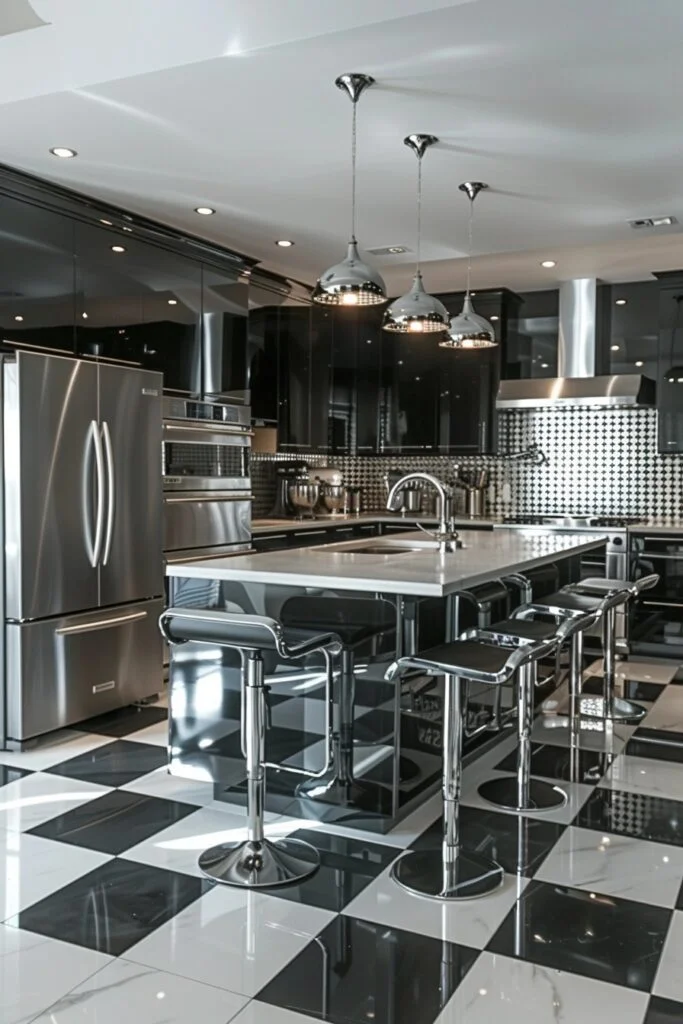
Chrome’s reflective qualities and durability make it a staple in Art Deco design. Combine polished chrome furniture with geometric shapes and a monochrome palette for a sleek, futuristic vibe. This style is especially effective in kitchens or bathrooms where chrome’s resilience and shine can be fully appreciated. Discover chrome furniture to enhance your space.
Geometric Brilliance: Glamorous Pattern Play
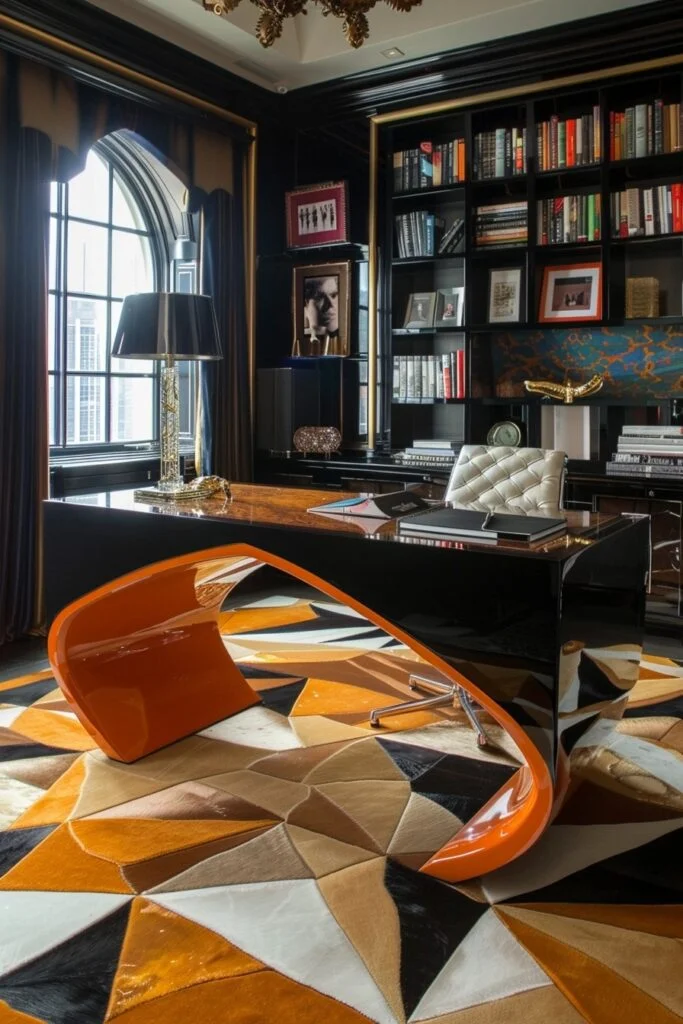
Celebrate the sharp angles and bold shapes that define Art Deco by incorporating triangular wall designs, hexagonal floor tiles, and other geometric patterns. Use a dramatic color scheme of black, white, and gold to amplify the visual impact. This style is perfect for home offices or lounges that seek to inspire creativity and sophistication.
Theatrical Flair: Deco Drama Den
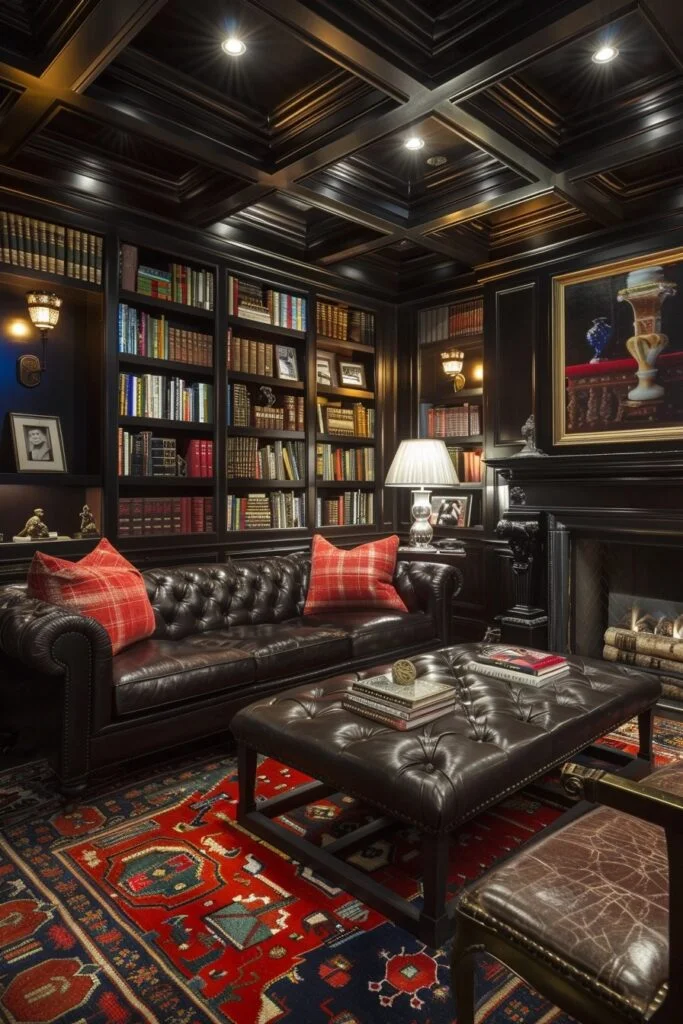
Embrace the dramatic side of Art Deco with high-contrast colors, luxurious materials, and rich textures. Velvet drapes, dark wood paneling, and opulent upholstery create an intimate yet grand setting. Statement lighting fixtures such as tiered chandeliers or sculptural sconces enhance the theatrical atmosphere, making this style ideal for sophisticated lounges or private dens.
Soft Sophistication: Plush Pastel Parlor
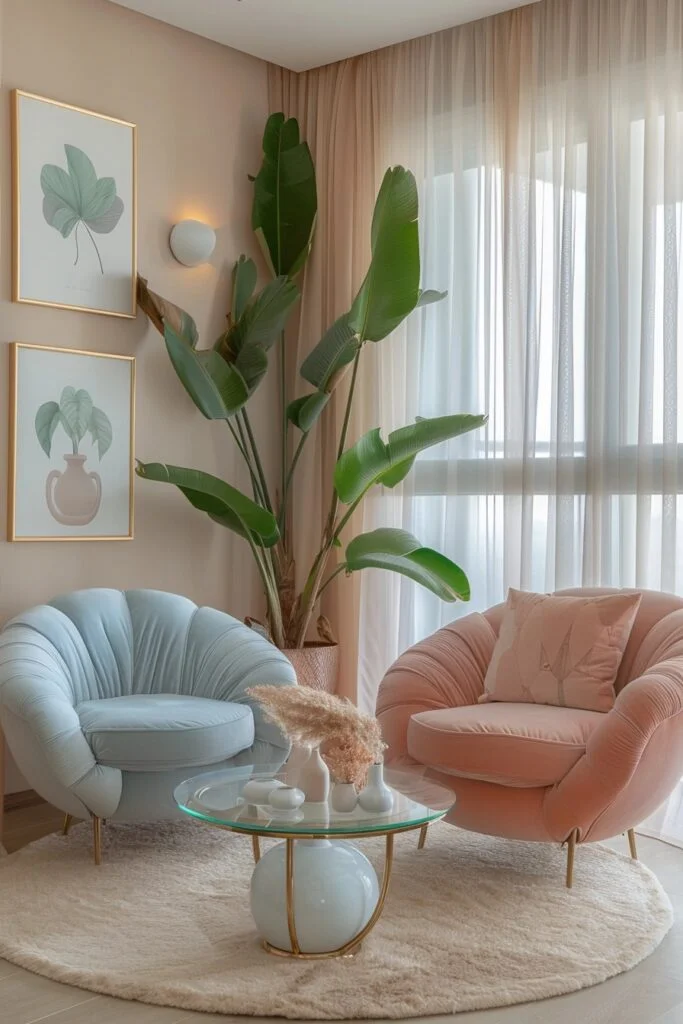
Soften the boldness of traditional Art Deco with a palette of pastel pinks, blues, and mint greens. Incorporate geometric patterns and metallic accents to maintain the style’s signature flair while creating a light, airy ambiance. This design is perfect for sunrooms or casual living spaces where relaxation and style coexist.
Parisian Romance: Midnight in Paris Masterpiece
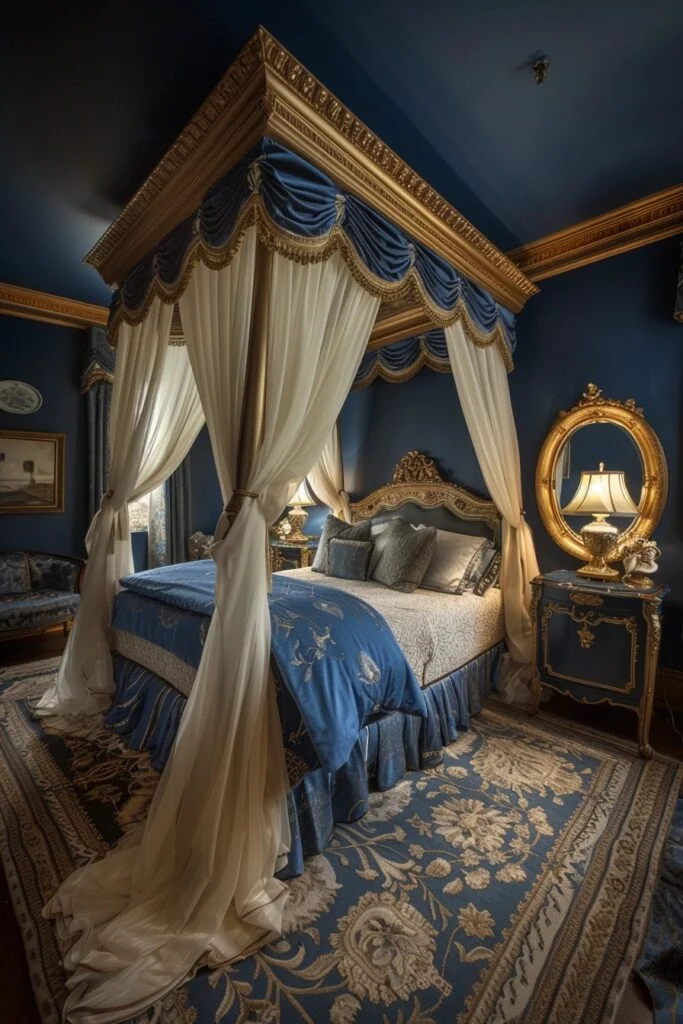
Invoke the allure of Parisian Art Deco with deep blues, blacks, and gold accents. Velvet upholstery, ornate gold trims, and patterned flooring evoke the opulence of 1920s Paris. This style is ideal for dining rooms or master bedrooms where a romantic, luxurious atmosphere is desired.
Modern Urban Fusion: The Elegance of City Living
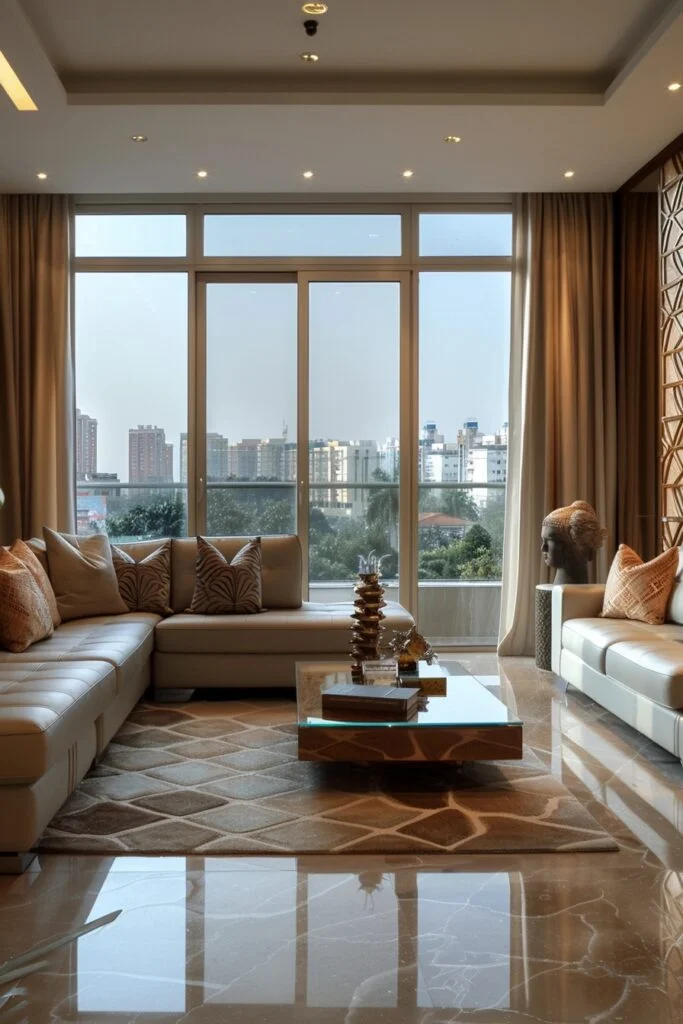
Blend Art Deco motifs with contemporary urban design by incorporating sleek lines, high-gloss finishes, and a refined color palette. Use glass and metal alongside traditional sunburst and stepped patterns to create a space that feels both timeless and modern. This style suits loft apartments or modern homes that appreciate a fusion of classic and current aesthetics.
Architectural Inspiration: Skyscraper Silhouette Studio

Inspired by the towering skyscrapers of the Art Deco era, this design emphasizes vertical lines and architectural elements. Materials like granite and aluminum, paired with angular furniture, reinforce the connection to this iconic period. Ideal for offices or studies, this style encourages creativity through bold, structured forms.
Warm Metallics: Bold Bronze Boudoir
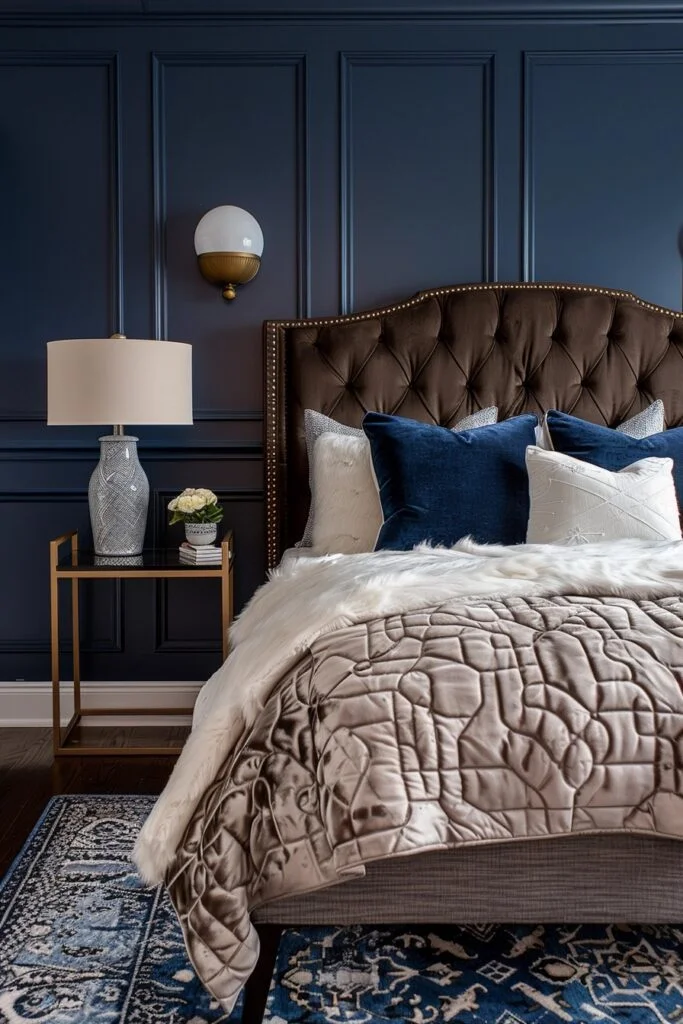
Introduce the rich warmth of bronze as an alternative to gold and silver. Bronze fixtures and accents paired with dark wood and leather create a cozy yet sophisticated environment. This style is perfect for bedrooms or libraries where a softer metallic glow enhances comfort and elegance.
Luxurious Living: Regal Roaring Lounge
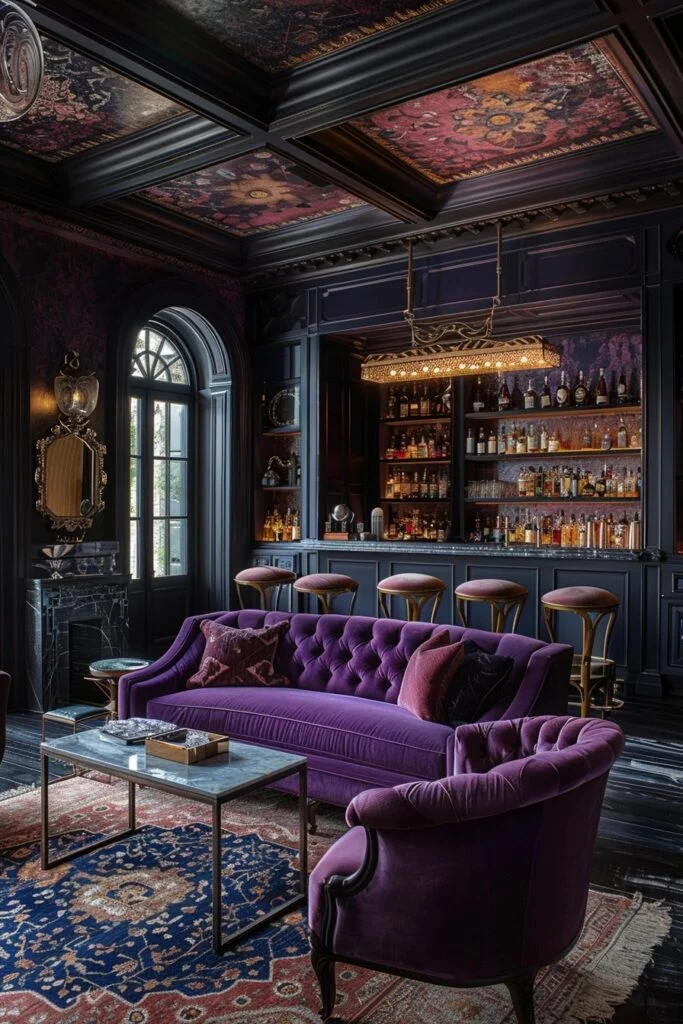
Recapture the extravagance of the Roaring Twenties with lush fabrics, ornate patterns, and bold color schemes. Gold accents, mirrored surfaces, and lavish decorative pieces like statues and large vases create a regal atmosphere. This style is ideal for living rooms or grand entrance halls where glamour takes center stage.
Serene Shine: Celestial Silver Setting
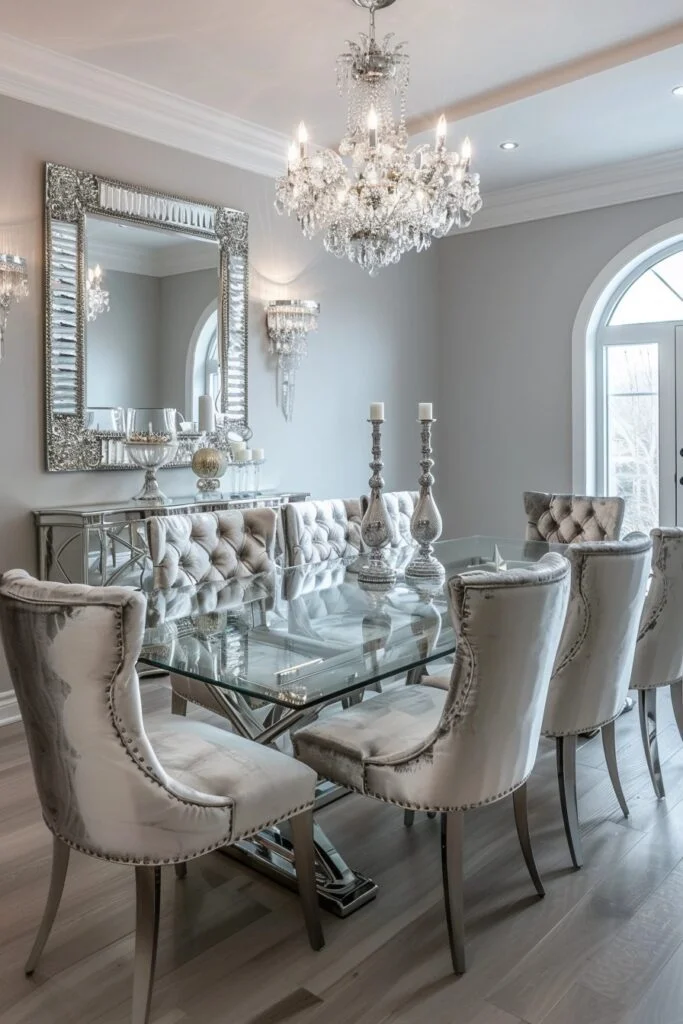
Utilize silver as the dominant accent to create a calm, ethereal space. Silver leaf details, mirrored furniture, and soft gray tones paired with gentle lighting foster a tranquil ambiance. This design is perfect for bathrooms or dressing rooms where light and space are enhanced by reflective surfaces.
Vibrant Accents: Radiant Ruby Room
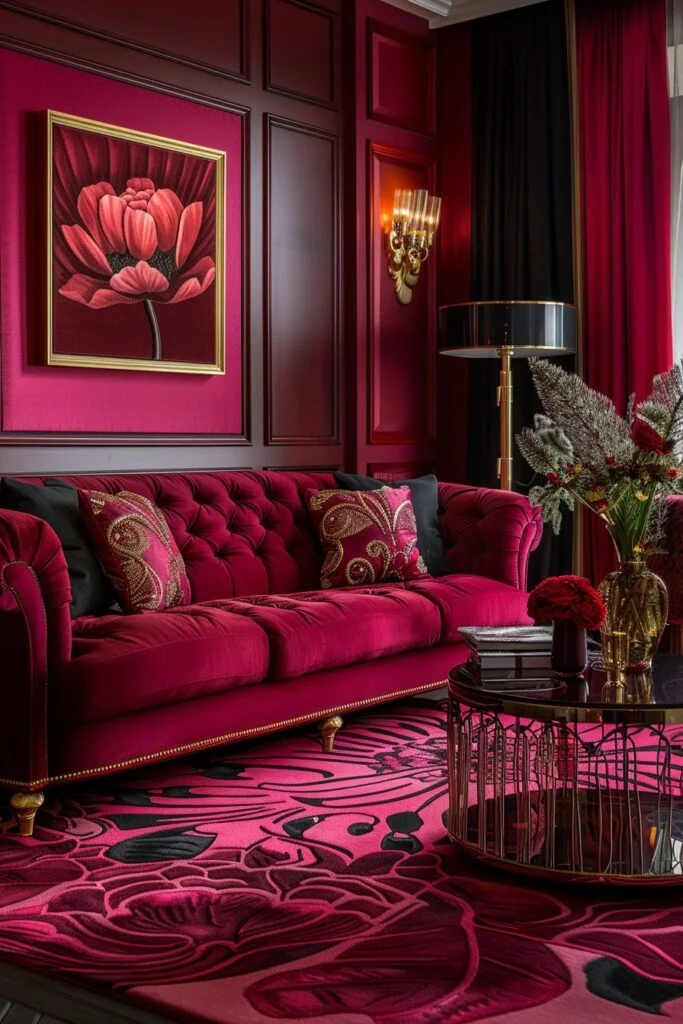
Infuse your space with the passionate energy of deep ruby reds, balanced with black and chrome for a modern edge. Plush fabrics and ornate rugs add layers of luxury, making this palette ideal for dining rooms or lounges that seek warmth and vibrancy.
Conclusion: Crafting Your Timeless Art Deco Sanctuary
The Art Deco era offers a treasure trove of design inspiration that can elevate your home with its blend of glamour, geometry, and luxury. Whether you gravitate towards bold patterns, metallic finishes, or rich color schemes, these ideas provide a versatile framework to create a space that reflects your personal style while honoring the timeless elegance of the 1920s. Ready to embark on your Art Deco transformation? Let these concepts inspire you to design a home that is both chic and enduring.

